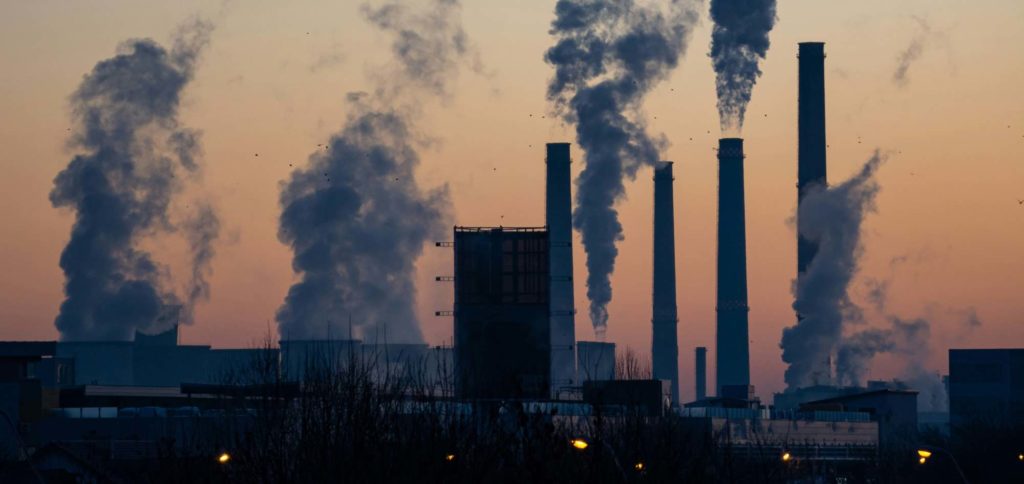Regulation (EU) 2023/1115 of 31 May 2023, concerning the availability and export from the Union of certain commodities and products associated with deforestation and forest degradation, repeals Regulation (EU) No. 995/2010 (known as the “EUTR-Timber Regulation”). It was published in the Official Journal of the European Union No. L150/206 on 9 June 2023.
The new Regulation (EUDR-Deforestation Regulation), which will enter into force on 29 June (with different timelines for some provisions), imposes mandatory due diligence rules on all operators and traders who place, make available, or export the following commodities from the EU market: palm oil, cattle, wood, coffee, cocoa, rubber, and soybeans.
Many sectors will be affected by the requirements of the Regulation. These include, but are not limited to, wood-furniture, food, clothing, footwear and tanning, cosmetics, car repair, paper, and packaging. In essence, operators will be required to ensure the traceability of the raw materials they sell to the plots of land from which they originate.
In summary, the EU deforestation Regulation:
- Lays down new rules to minimise the risk of deforestation and forest degradation associated with products placed on or exported from the EU market.
- Imposes mandatory due diligence rules on all operators and traders who place or make available, or export from the EU market, the following commodities mentioned above: palm oil, cattle, wood, coffee, cocoa, rubber and soy.
- It mandates that companies must meet three strict conditions before placing raw materials and products on the EU market: these conditions include (1) meeting the 2020 deadline, (2) complying with local legislation, and (3) a due diligence statement, which includes an audit.
- Products and raw materials found to be non-compliant will be subject to a ban on marketing and exporting to and from the EU market.
- As a result of the new rules, companies and suppliers may face potentially more complex situations, such as increased competition in the supply of suitable raw materials, higher transition costs and the exclusion of small producers from the EU market.
Navigating the EU deforestation regulation: essential steps for businesses

Deforestation is recognized as a significant contributor to greenhouse gas emissions, biodiversity loss, and disruptions to global hydrological cycles, presenting a formidable sustainability challenge with far-reaching consequences. Supply chains that operate without contributing to deforestation play a crucial role in addressing the climate crisis and biodiversity decline.
However, many companies and financial institutions have been slow to respond, despite approximately 24% of corporate revenues being tied to raw materials linked to deforestation. This exposes businesses to escalating risks in both the short and long term.
In April and May 2023, the European Parliament and European Council respectively adopted the EU Deforestation Regulation (EUDR). This regulation introduces mandatory due diligence rules for all companies involved in placing, making available, or exporting products to or from the EU market.
Below, businesses will find essential information to initiate necessary preparations for this pivotal regulatory change.
New rules to halt deforestation
Defined as “the conversion of forests, whether anthropogenic or not, to other uses, including the conversion of primary forests or naturally renewed forests into forest plantations or other wooded land,” tropical deforestation is a major cause of greenhouse gas emissions. It contributes significantly to global emissions and represents a substantial impact on soil health.
Deforestation not only removes a critical reservoir for carbon uptake (tropical forests alone hold between 228 and 247 gigatons of CO2, equivalent to seven times the annual CO2 emissions from human activities) but also leads to biodiversity loss due to habitat destruction, posing a severe threat to species survival. Additionally, it disrupts the hydrological cycle, leading to effects such as reduced rainfall and increased soil erosion rates.
Halting deforestation is crucial for achieving nature and climate goals.
Overview of the EU deforestation regulation and its impact on businesses
The EU Deforestation Regulation will require companies to implement numerous changes within a short timeframe or face penalties for non-compliance. The regulation covers seven key raw materials: livestock, cocoa, coffee, palm oil, rubber, soybeans, and wood. It also extends to ‘derived products’—items containing or made using these raw materials (such as chocolate, furniture, and leather).
Currently, the EUDR focuses solely on forest ecosystems, excluding other important woodland ecosystems with significant biodiversity or carbon storage, such as wetlands or peatlands. Their potential inclusion will be considered later.
Under the EUDR, companies must satisfy three stringent conditions before placing raw materials and products on the EU market:
- zero deforestation, or produced on land that has not been subject to deforestation or forest degradation after the cut-off date of 31 December 2020;
- legal and produced in accordance with the relevant legislation of the country of production;
- be subject to a due diligence statement supported by verifiable information (such as traceability, continuous monitoring, etc.) showing that the products did not contribute to deforestation after the December 2020 deadline.
Products and raw materials found to be non-compliant will be subject to a ban on marketing and exporting to and from the EU market.
The EUDR also introduces a benchmarking system that categorises countries within and outside the EU based on their risk levels related to deforestation and forest degradation (low, standard, or high risk). This classification considers factors such as the expansion rate of agricultural land dedicated to producing the seven commodities and derived products. The regulatory obligations imposed on companies will vary according to the assigned risk level.
Who is affected by the EU deforestation regulation?
The EU deforestation regulation impacts both operators and traders.
Operators: All individuals or legal entities engaged in commercial activities that place relevant raw materials and products on the EU market or export them.
Traders: All individuals or legal entities within the supply chain, excluding operators, who make the mentioned raw materials and products available on the EU market as part of their commercial activities.
Both operators and traders are obligated to conduct thorough due diligence checks and provide evidence that the products they place on the EU market or export meet legal requirements and are free from deforestation.
Potential challenges of the EU deforestation regulation

Increased competition for suitable raw materials
The demand for suitable raw materials could outpace availability due to suppliers’ longer lead times in complying with provisions, leading to production and supply chain disruptions, financial losses, and economic instability.
Changes in sourcing regions
The emphasis on supply chain compliance under the regulation will compel many companies to explore new territories, necessitating significant interventions and adjustments that could prove challenging and costly. Without specific incentives, companies may lean towards larger production units in low-risk regions, opting for these solutions over sourcing raw materials from high-risk areas. While this approach may mitigate deforestation risks in their supply chains, it does not address the regulation’s core objective of eliminating deforestation.
Moreover, exporters might divert their supply to regions without deforestation restrictions to meet increasing demand, potentially excluding small producers and vulnerable communities from the EU market. Instead of shifting sourcing entirely, companies should engage with and support their sourcing regions to implement and adapt interventions that contribute positively to forest protection and sustainability.
Flow rate and speed of implementation of the EUDR
Although the technologies needed to implement EUDR already exist, it will still be an expensive and complex process. Businesses will need to identify key technologies to leverage (e.g. satellite imagery), while supply chain partners will need to focus on solutions to increase data-driven traceability. In addition, it will be necessary to introduce a Code of Conduct for suppliers, with the aim of selecting and controlling their supplier base through evidence of compliance collected with the help of satellite images of production sites.
What can companies do to prepare?
- Determine EUDR-compliant procurement commitments and policies. Companies will have to consider the scope, expiry date, cut-off date and further disclosure of information in the form of geolocation of farms or product DNA markers. The Accountability Framework Initiative provides a framework that helps businesses understand how to set cut-off dates and relate to suppliers. The initiative is in line with the protocols SBTN, SBTI and GHG.
- Invest in traceability and monitoring systems. To ensure compliance, companies will need to have traceability systems in place to trace the origin of the product and the region of origin, monitoring systems that allow them to verify any deforestation practices after the cut-off date, and complaint mechanisms that allow cases of non-compliance to be brought to light in order to mitigate and reverse the effects of deforestation.
- Establish an implementation plan. Companies can take advantage of the following elements to comply with the provisions of the EUDR:
- Business Systems & Sustainability Programs
- Collaborative approaches involving suppliers and stakeholders
- Internal and regional certification systems compliant with the EUDR.
- Develop long-term strategic planning. CEOs and other executives will need to take into account all forest conservation issues when developing long-term corporate strategic planning. Deforestation, in fact, must take on a role of absolute priority within the corporate strategy and no longer constitute a matter of secondary importance.
Are you a manufacturer of cosmetic products? Understand your obligations under the EU deforestation regulation

As a manufacturer of cosmetic products, it is essential to comprehend your obligations under the EU Deforestation Regulation. You must determine the best approach to manage this regulatory change and ensure that your products, including the raw materials they contain, achieve full compliance.
Contact us for assistance in navigating this crucial regulatory update and ensuring your business adapts effectively to these new requirements.

